Introduction
Cross Cultural Marriages Certificate in Nigeria are unions between individuals from different cultural backgrounds, fostering diversity and multiculturalism.
In Nigeria, there is an increasing prevalence of such marriages, driven by globalization and societal changes.
A. Definition of cross-cultural marriages
Cross-cultural marriages refer to unions between individuals from distinct cultural, racial, or ethnic backgrounds.
These marriages transcend geographical borders and bring together people with diverse customs, traditions, and beliefs.
B. Growing trend of cross-cultural marriages in Nigeria
In recent years, Nigeria has witnessed a significant rise in cross-cultural marriages.
This trend can be attributed to factors like globalization, increased international travel, and the growing acceptance of intercultural relationships.
Nigerians are embracing marriages with foreigners, exploring cultural differences, and creating unique partnerships that promote understanding and respect.
This trend is prominently visible in metropolitan cities like Lagos, Abuja, and Port Harcourt.
These marriages often result from love connections, educational opportunities abroad, or work-related encounters.
Nigerian individuals are increasingly open-minded and willing to bridge cultural gaps, seeking companionship beyond their communities.
Cross-cultural marriages in Nigeria enrich cultural knowledge, expose individuals to diverse perspectives, and promote tolerance and acceptance among communities.
However, challenges such as varying traditions, communication barriers, and societal expectations may arise.
Couples need to navigate these hurdles, respecting each other’s cultural identity, and building a foundation of compromise and understanding.
Cross-cultural marriages in Nigeria symbolize a growing trend towards globalization and a willingness to embrace diversity.
These unions have the potential to foster cultural exchange, intercultural understanding, and ultimately, a more harmonious society.
Cross-Cultural Marriages: Challenges faced in Nigeria
Cross-cultural marriages in Nigeria present numerous challenges due to cultural differences, language barriers, religions, traditions, and family and societal acceptance.
These challenges can create significant hurdles for couples seeking to obtain a marriage certificate.
1. Cultural differences and clashes
Cultural differences can lead to misunderstandings and conflicts between spouses from different backgrounds.
Varying beliefs, values, and customs can affect communication and decision-making processes, leading to tension in the relationship.
2. Language barriers
Language plays a crucial role in effective communication.
In cross-cultural marriages, couples may struggle to understand each other’s languages, leading to misinterpretations and difficulties in expressing emotions and resolving conflicts.
3. Religions and traditions
Nigeria is a diverse country with various religious beliefs and cultural traditions.
When individuals from different religious backgrounds marry, challenges arise in terms of reconciling practices, rituals, and traditions, potentially causing strain on the relationship.
4. Family and societal acceptance
Family and societal acceptance is crucial for a successful cross-cultural marriage.
In Nigeria, where traditional values are highly regarded, couples may face resistance and disapproval from family members who are not open to intercultural unions.
This lack of acceptance can create emotional distress within the marriage.
5. Financial implications
Cross-cultural marriages often involve additional financial costs.
This includes expenses related to language courses, cultural training, and adapting to a new lifestyle.
These financial burdens can put stress on the couple’s relationship and compromise their well-being.
6. Navigating legal processes
Obtaining a marriage certificate requires navigating through legal processes, which can be challenging when dealing with cross-cultural differences.
Couples must understand and comply with the legal requirements of both their partner’s culture and their own, adding complexity to the certification process.
7. Raising multicultural children
In cross-cultural marriages, raising children in a multicultural environment poses unique challenges.
Parents must balance and integrate different cultures, languages, and traditions into their children’s lives, ensuring their well-rounded development while navigating potential cultural clashes.
8. Social isolation
Cross-cultural marriages may face social isolation due to the lack of a support network.
Being far from their own cultural communities and facing difficulties integrating into their partners’ communities can make couples feel isolated, affecting their overall well-being.
9. Identity and self-expression
In a cross-cultural marriage, individuals may struggle with questions of identity and self-expression.
Balancing multiple cultural identities and finding a sense of belonging can be emotionally challenging, requiring open communication and mutual understanding from both partners.
10. Maintaining cultural heritage
Preserving one’s cultural heritage can be a challenge in a cross-cultural marriage.
Adapting to a new culture and assimilating can cause some individuals to neglect or lose touch with their own cultural background, leading to a sense of identity loss.
Despite the challenges, cross-cultural marriages in Nigeria can also bring great joy and fulfillment.
Couples who overcome these obstacles through open communication, mutual respect, and a willingness to learn and appreciate each other’s cultures can build strong and resilient relationships.
Read: Legal Implications of Not Having a Marriage Certificate in Nigeria
Securing a Certificate for Cross-Cultural Marriages in Nigeria
Cross-cultural marriages have become increasingly common in Nigeria, as people from different backgrounds come together in love and commitment.
However, before they can officially tie the knot, they must secure a marriage certificate that is recognized by the Nigerian government.
This section will explore the legal requirements and processes involved in obtaining this certificate, as well as the documentation needed and the steps to follow.
A. Legal Requirements and Processes
- Both parties must be at least 21 years old and not related by blood.
- The marriage must be voluntary and with the full consent of both parties.
- The couple must have lived in Nigeria for a minimum of 15 days prior to the wedding.
- One party must be Nigerian or hold a valid Nigerian residence permit.
- Obtain marriage intentions form from the marriage registry and complete it.
- Submit the completed form along with other required documents to the registry.
- Pay the required fees and obtain a date for the marriage ceremony.
- The marriage must be conducted in the presence of at least two witnesses.
- After the ceremony, the marriage certificate will be issued.
B. Documentation Needed
- Proof of age (birth certificate, valid identification document).
- Valid Nigerian identification card or residence permit.
- Passport-sized photographs of both parties.
- Sworn affidavit of bachelorhood/spinsterhood.
- Sworn affidavit of freedom to marry.
- Statutory declaration of marriage.
C. Steps Involved in Obtaining a Marriage Certificate
- Visit the marriage registry nearest to your place of residence.
- Submit all the required documentation, including the completed marriage intentions form.
- Pay the prescribed fee for the marriage certificate.
- Attend the scheduled marriage ceremony with your witnesses.
- Exchange vows and sign the marriage certificate in the presence of the registrar and witnesses.
- Receive the certified marriage certificate after the ceremony.
D. Role of Embassies or Consulates
Embassies or consulates do not play a direct role in the process of obtaining a marriage certificate in Nigeria.
However, they can provide guidance to foreign nationals on the documentation required, cultural norms, and legal requirements.
E. Possibility of Pre-Marital Counseling
While not mandatory, pre-marital counseling is highly recommended for cross-cultural marriages.
It can help couples navigate cultural differences, expectations, and potential challenges they may face in their union.
Obtaining a marriage certificate for cross-cultural marriages in Nigeria requires adherence to legal requirements, completion of necessary documentation.
And following a specific process outlined by the marriage registry. The role of embassies or consulates is minimal, but they can still offer valuable guidance.
Ultimately, couples should consider pre-marital counseling to ensure a successful and harmonious cross-cultural marriage.
Read: How to Verify the Authenticity of a Nigerian Marriage Certificate
Explore Further: The Socio-Economic Implications of Marriage in Nigeria
Uncover the Details: Unraveling the Spiritual Dimensions of Marriage in Nigeria
Benefits of Having a Marriage Certificate
Cross-cultural marriages in Nigeria offer a tapestry of diversity and shared love stories.
While these unions celebrate the fusion of different cultures and traditions, they can also bring challenges in terms of legal recognition and rights.
A. Legal Recognition and Protection
One of the primary benefits of having a marriage certificate is the legal recognition it provides.
In cross-cultural marriages, where different traditions and customs often intersect, this recognition can be vital in securing the rights and protection of both spouses.
B. Eligibility for Spousal Rights and Benefits
Marriage certificates grant couples access to various spousal rights and benefits.
These include the right to make medical decisions for one’s spouse, access to spousal health insurance, and the ability to sponsor a spouse for immigration purposes.
C. Proof of Marriage for Immigration Purposes
In cross-cultural marriages where one spouse may be a foreign national, a marriage certificate serves as crucial documentation for immigration purposes.
It demonstrates the legitimacy of the marriage, facilitating the process of obtaining visas and residency permits.
D. Inheritance and Property Rights
When it comes to inheritance and property rights, a marriage certificate ensures that both spouses are legally entitled to their share of assets and properties.
The certificate establishes a legal framework for asset distribution, minimizing disputes, and ensuring a smoother transfer to surviving spouses and heirs.
In cross-cultural unions, a marriage certificate extends benefits, safeguarding spousal rights, granting essential benefits, serving as proof for immigration, and protecting inheritance and property rights.
These advantages are instrumental in ensuring a secure and harmonious future for couples in cross-cultural marriages in Nigeria.
Read: Difference Between Traditional, Religious, & Registry Marriages in Nigeria
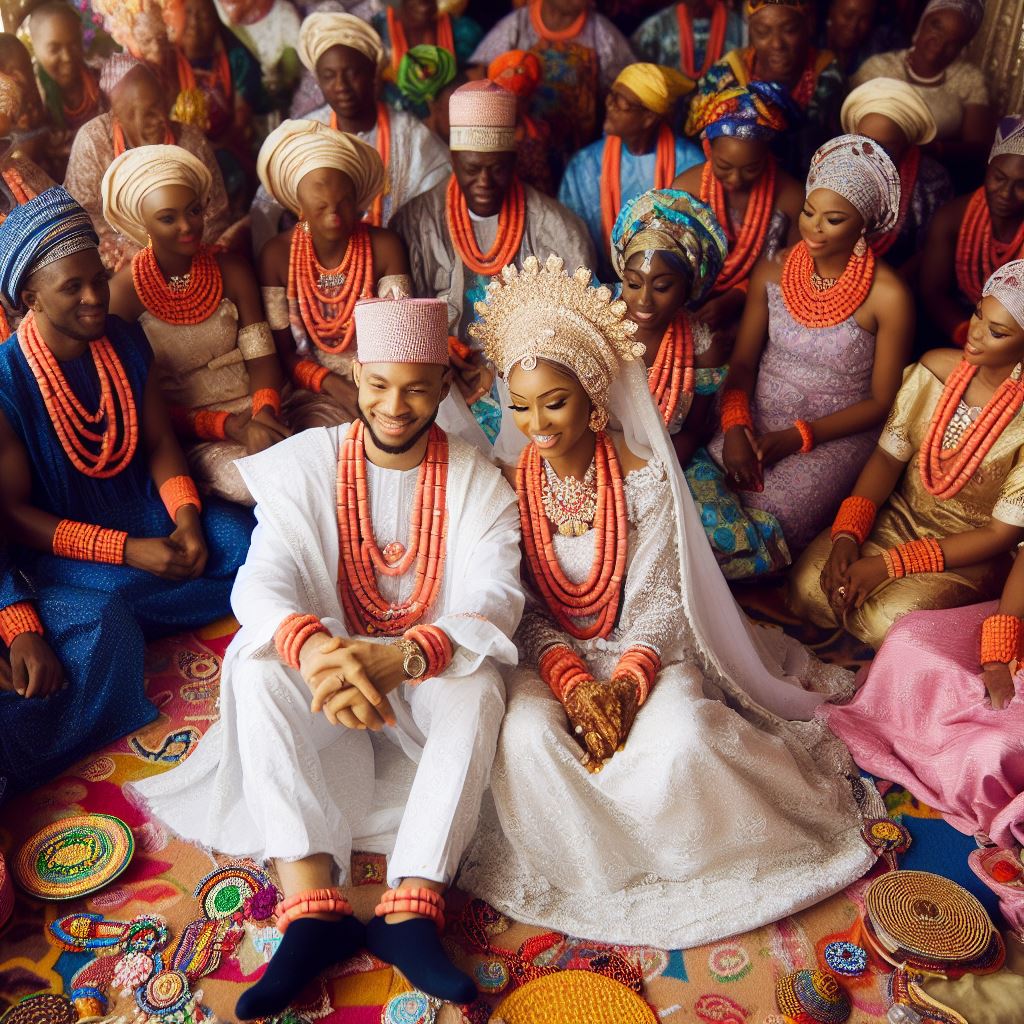
Tips for a Successful Cross-Cultural Marriage in Nigeria
Marriage is a lifelong commitment that requires effort, understanding, and compromise.
When two individuals from different cultures come together, it can create a beautiful and unique union.
However, it is essential to navigate through the complexities of cross-cultural marriages to ensure a successful and harmonious relationship.
Here are some valuable tips:
A. Open Communication and Understanding
- Effective communication is vital in any marriage, but even more so in a cross-cultural one.
- Take the time to understand and appreciate each other’s backgrounds, values, and beliefs.
- Be open and honest about your expectations, concerns, and any cultural differences that may arise.
- Active listening and empathy will help deepen your understanding and strengthen your bond.
B. Cultural Sensitivity and Adaptation
- Respect and appreciate each other’s cultures by learning about traditions, customs, and etiquette.
- Be sensitive to cultural differences and avoid making assumptions or judging based on your own customs.
- Respect each other’s religious practices and find ways to incorporate and celebrate both cultures in your lives.
- Flexibility and adaptability are key in navigating the challenges that arise from merging two different cultures.
C. Compromise and Flexibility
- A successful cross-cultural marriage requires a willingness to compromise and find common ground.
- Be open to integrating traditions and practices from both cultures into your daily lives.
- Find a balance that respects both partners’ needs and values, taking into account cultural expectations.
- Flexibility is crucial when dealing with differences in cuisine, language, parenting styles, and family dynamics.
D. Building a Support Network
- Establishing a support network is essential for a successful cross-cultural marriage.
- Connect with other couples who are in similar relationships or have experience with cross-cultural dynamics.
- Seeking counseling or guidance from professionals who specialize in working with multicultural couples can provide valuable insights and advice.
- Build relationships with family and friends who support and embrace your union, regardless of cultural differences.
A cross-cultural marriage in Nigeria can be a rewarding and enriching experience, but it requires effort, understanding, and open-mindedness from both partners.
By embodying open communication, cultural sensitivity, compromise, flexibility, and building a support network, you can navigate the challenges and embrace the beauty of a cross-cultural union.
Remember, love knows no borders or boundaries, and by embracing each other’s cultures, you can create a harmonious and fulfilling marriage.
Read: The Importance of a Marriage Certificate in Property Claims
Conclusion
Cross-cultural marriages are a celebration of the richness of cultural diversity.
They provide a unique platform for fostering understanding and tolerance among communities, breaking down barriers, and nurturing harmonious relationships.
In the spirit of these diverse unions, it is crucial for couples to seek legal recognition through the acquisition of a marriage certificate in Nigeria.
This legal step not only reinforces their commitment but also provides a robust foundation of legal protection and rights for both parties, ensuring the security of their marital union.
Embrace the beauty of cultural fusion while securing your union with the strength of the law.
Couples in cross-cultural marriages should embark on this journey, etching their love story in tradition and the legal framework, ensuring a solid foundation for their future.
In doing so, they not only honor their unique love but also contribute to the celebration of cultural diversity in Nigeria, setting an inspiring example for a harmonious and diverse society.

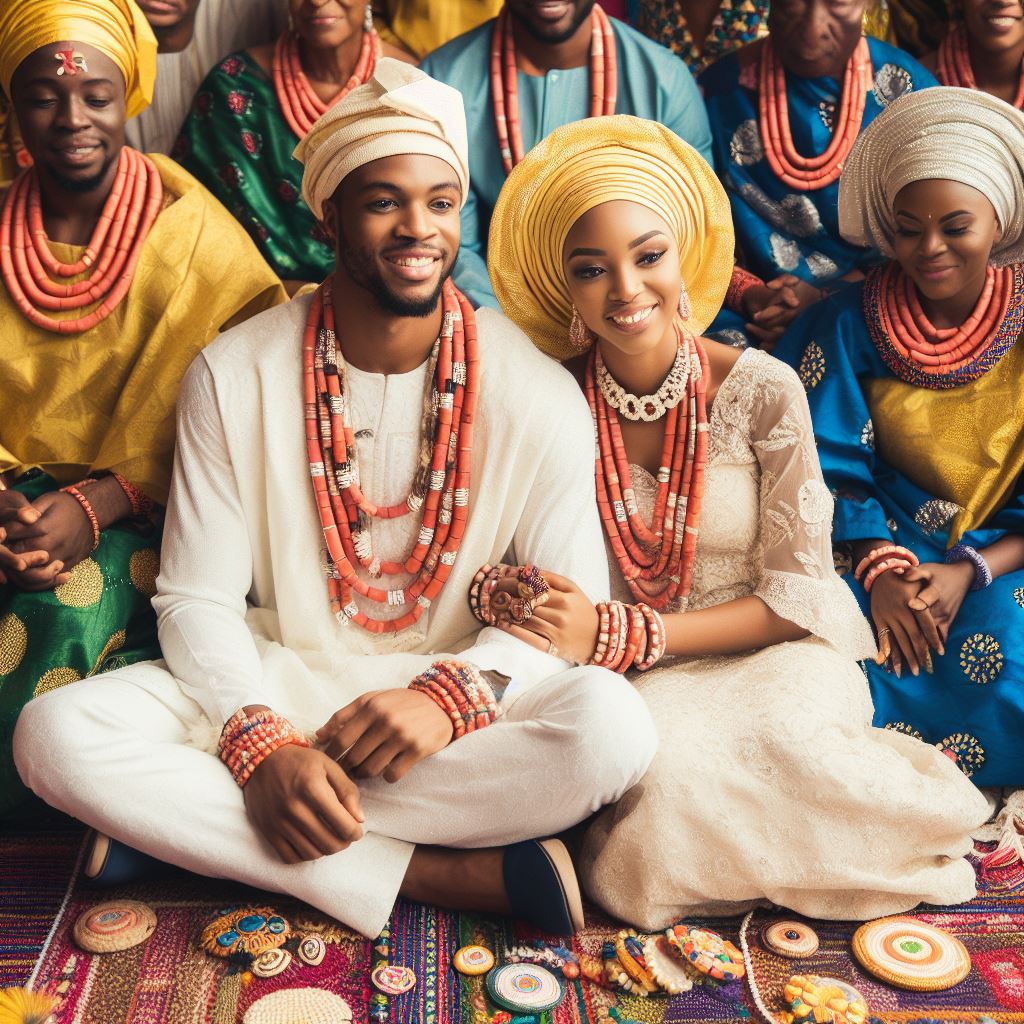
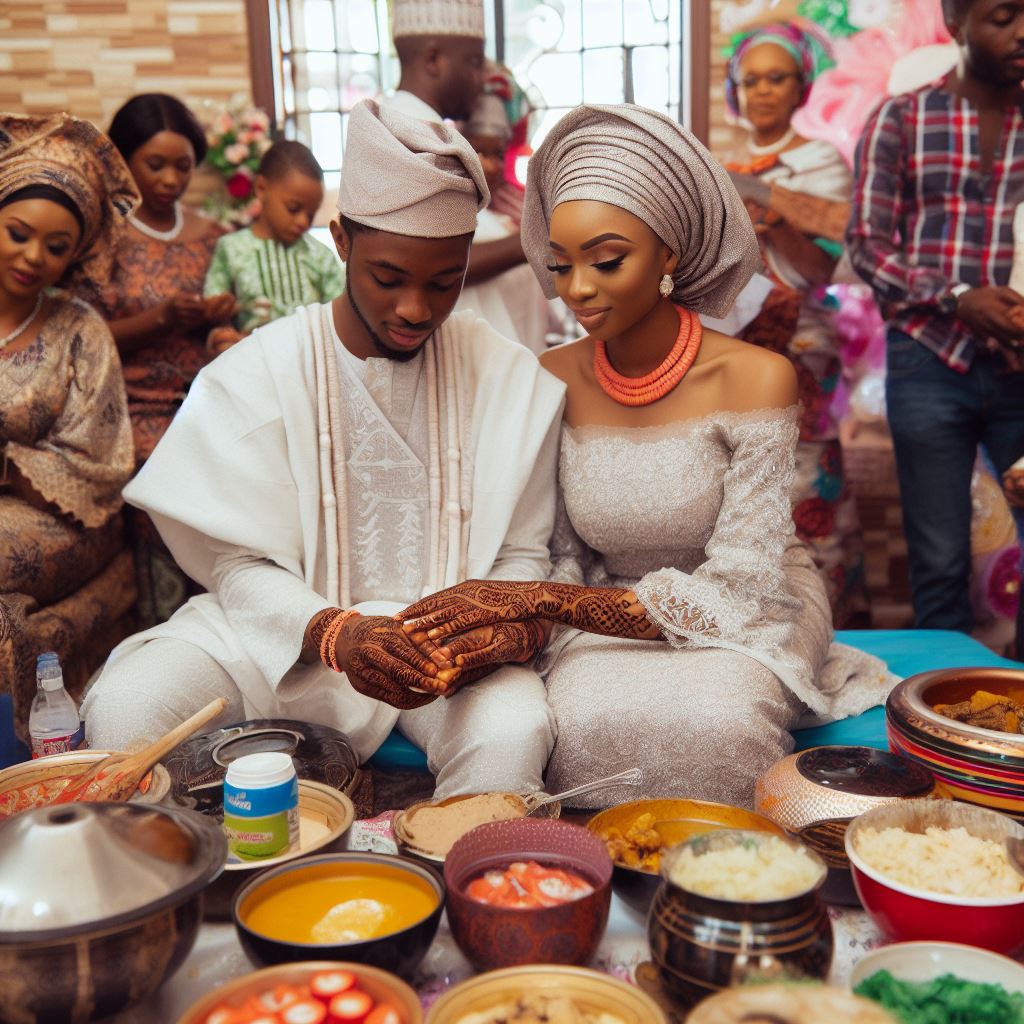
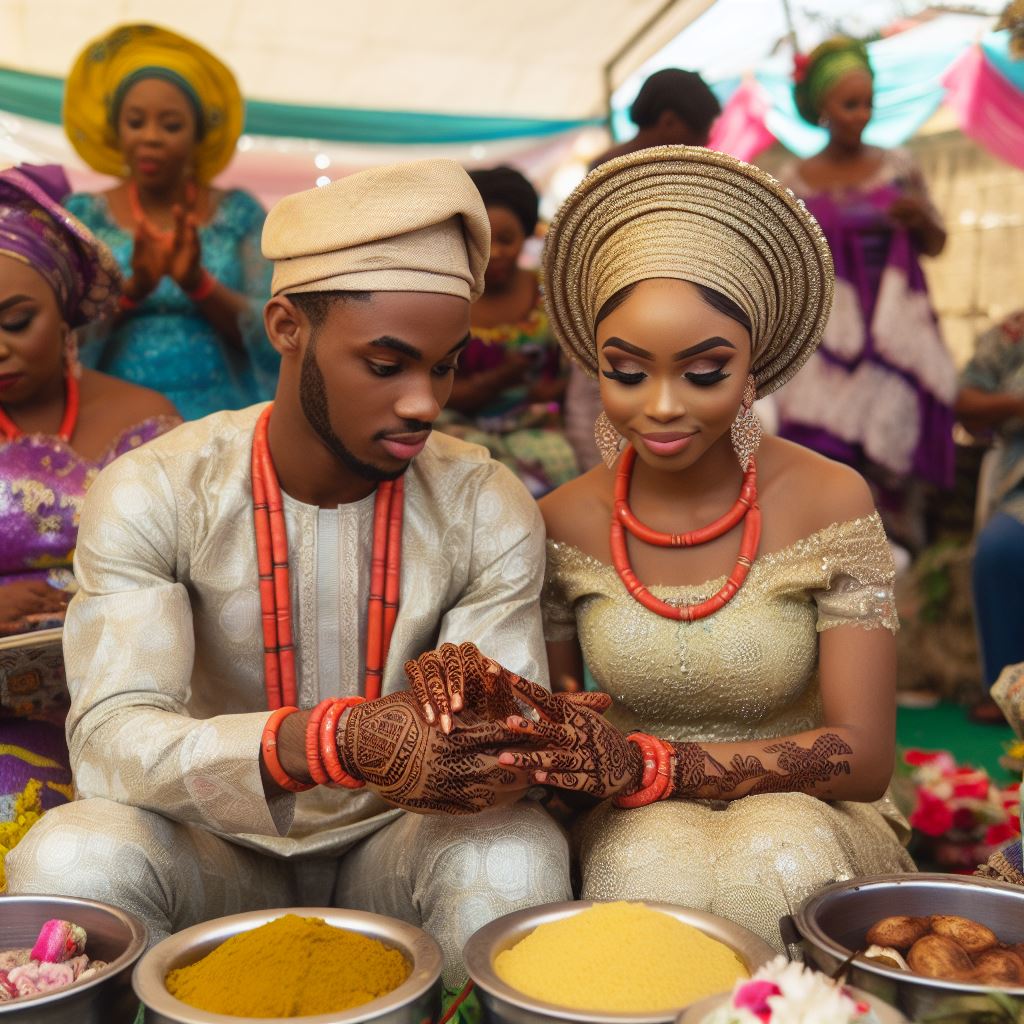
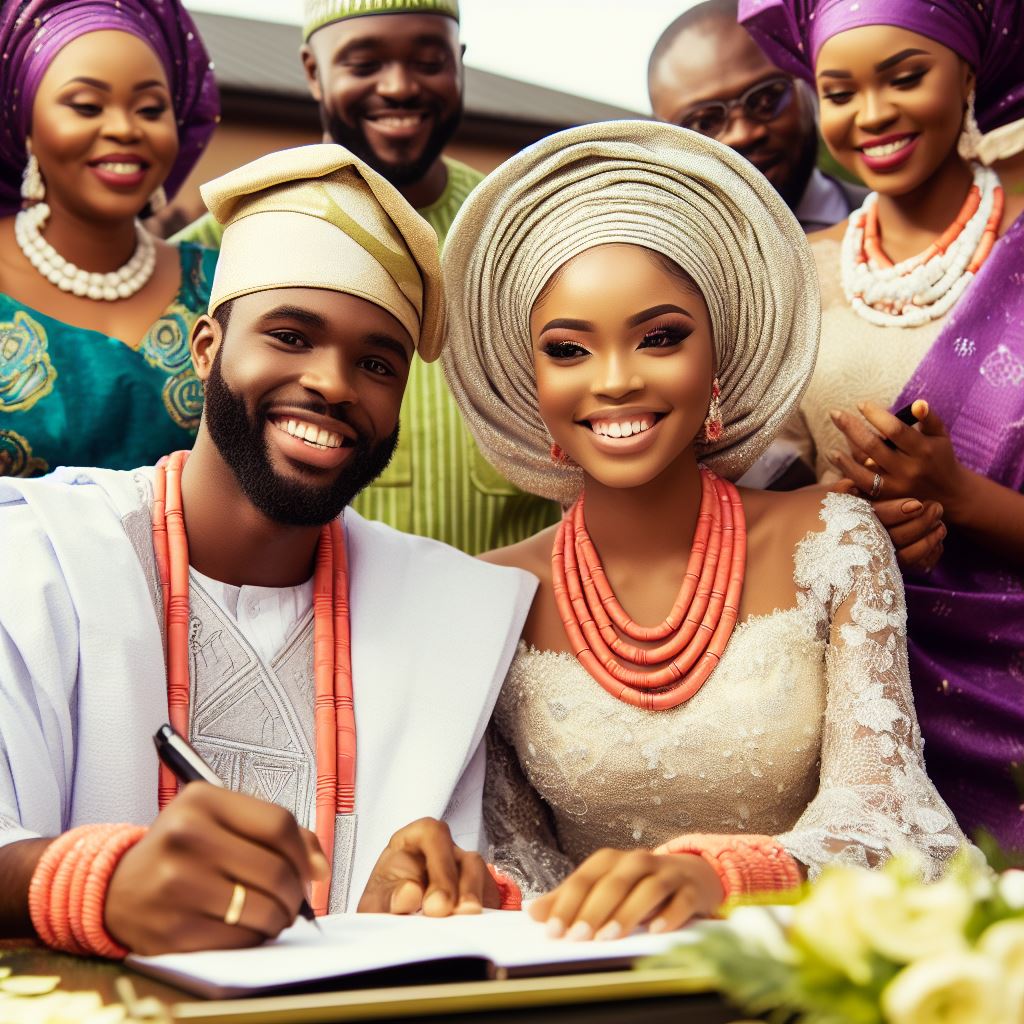
What societal factors are contributing to the rise of cross-cultural marriages in Nigeria?